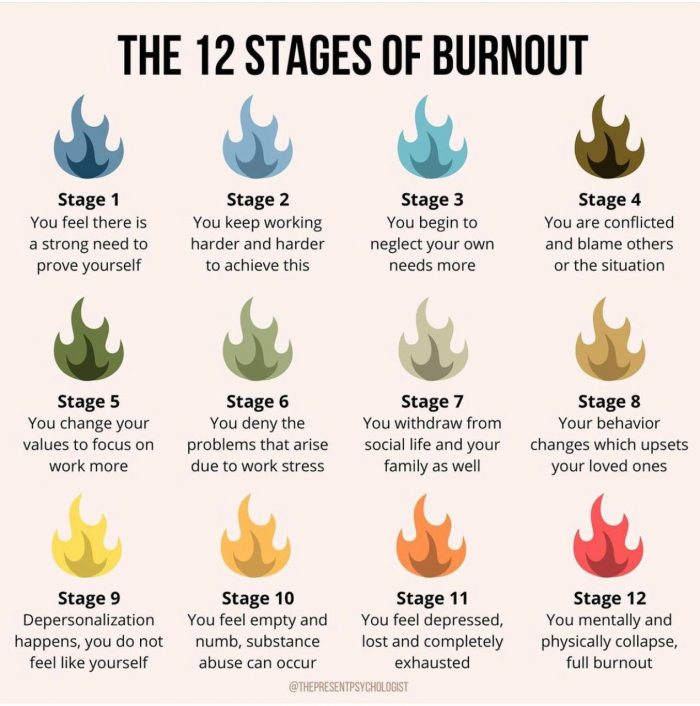The start of a new year is a chance for fresh beginnings, renewed ambitions, and a focus on personal goals. For many hardworking Filipinos in the healthcare, hospitality, and domestic work industries, it’s also an opportunity to reflect on their careers and find ways to build a healthier, more sustainable work-life balance. But as we tackle our ambitions, burnout can sneak in, threatening to derail even our best intentions.
Burnout doesn’t just affect our productivity, it impacts our physical health, emotional stability, and relationships with loved ones. This blog explores burnout, its signs, and, more importantly, how to prevent it while working in high-pressure industries. Whether you’re one of the many overseas Filipinos or striving at home, these strategies are here to help you start the year strong and maintain your well-being.
What is Burnout and Why Should You Address It?
Burnout, according to the World Health Organization (WHO), is a state of physical, emotional, and mental exhaustion caused by prolonged and excessive stress. While it’s most commonly work-related, it can spill over into other areas of life, leaving individuals feeling drained, unmotivated, and detached.
Filipinos in industries like hospitality, healthcare, and domestic work face unique challenges such as irregular hours, cultural pressures, and physically demanding tasks. Left unaddressed, burnout can lead to serious mental health issues, chronic fatigue, decreased productivity, and strained relationships.
The good news? With awareness, early intervention, and proactive strategies, burnout can be avoided, or managed in a way that ensures long-term well-being.

Recognising the Early Signs of Burnout for Filipino workers
Burnout doesn’t come all at once; it creeps in slowly. Identifying it early is the first step toward taking control. Here are some common warning signs to watch for:
Physical symptoms: Chronic fatigue, headaches, muscle pain, or changes in sleep patterns.
Mental and emotional exhaustion: Feeling drained, unmotivated, or unable to concentrate.
Cynicism or detachment: Becoming overly critical or feeling disconnected from your job or coworkers.
Decreased performance: Struggling to meet work goals or finding it harder to complete tasks.
Irritability or anger: Losing patience more easily, both at work and in personal relationships.
If any of these sound familiar, it’s time to hit the pause button and take steps toward self-care.
Common Causes of Burnout in High-Stress Industries
Burnout doesn’t happen in a vacuum. It’s often fueled by a combination of factors, especially in demanding professions like those in healthcare, hospitality, and domestic work.
Healthcare Industry
Emotional toll of caring for patients, especially during challenging cases
Extended shifts that impact sleep patterns and physical endurance
Lack of time for self-care due to demanding workloads
Hospitality Industry
Long hours on your feet and unpredictable schedules
High-pressure environments, especially during peak seasons
Balancing customer satisfaction while managing operational stress
Domestic Work
Being away from family, especially for overseas Filipinos
Limited rest periods, leading to physical and emotional exhaustion
Balancing employer expectations with personal well-being
Understanding these triggers allows you to implement strategies tailored to your unique circumstances.

Practical Strategies to Prevent Burnout in Filipino workers
Here’s the heart of our discussion: actionable strategies you can use to reduce stress and prevent burnout in 2025. It’s all about creating balance and prioritising yourself, even in demanding work settings.
Master Time Management
Effective time management can make a world of difference.
Prioritise your tasks every day, focusing on what’s most important or urgent.
Use techniques like the Pomodoro Method (working in intervals with short breaks in between) to avoid overwhelming yourself.
Schedule breaks throughout your workday to recharge physically and mentally.
Set Personal Boundaries
Learning when to say “no” or stepping back from excessive workloads is key.
Define working hours and communicate clearly with employers, clients, or supervisors about when you’re available.
Resist overextending yourself by taking on excessive tasks or engaging in too much overtime.
Prioritise Self-Care
Self-care isn’t a luxury; it’s a necessity.
Engage in activities that bring you joy, whether it’s reading, taking a walk, or reconnecting with hobbies.
Treat sleep as a priority, aiming for at least 7–8 hours a night. Learn more from our article on Tips on How to Get Better Sleep.
Nourish your body with balanced meals and stay hydrated throughout the day.
Build a Support Network
Having a solid support system can help alleviate stress.
Share your struggles with friends and family. You’d be surprised how many are willing to listen or offer advice.
If you’re an overseas Filipino, stay connected to loved ones through regular video calls or online chats.
Seek workplace camaraderie by forming genuine connections with colleagues.
Find Meaning and Fulfilment
Sometimes, reframing your perspective can help foster connection and engagement.
Reflect on the meaningful aspects of your job. Whether it’s helping a patient heal, delighting a hotel guest, or making a household run smoothly, your work makes a real difference.
Set personal goals for growth, whether it’s learning a new skill, taking a professional course, or saving up for a dream project.

Real-Life Success Stories
Maria, 32, Healthcare Worker in the UK:
“During the pandemic, my stress was off the charts. I started journaling every night to process my emotions, which surprisingly helped me sleep better. Over time, I began to feel more optimistic and connected to my job again.”
Learn more about the Benefits of Journaling
Dennis, 40, Domestic Worker in Dubai:
“I’ve learned to say no when I feel overwhelmed. At first, it felt selfish, but now I realise it’s not. My employers respect my boundaries, and I have way more energy for my tasks.”
Annie, 28, Hotel Front Desk Staff in Singapore:
“Joining a local hiking group helped me disconnect from work stress every weekend. It gave me something to look forward to and brought a lot of balance into my life.”
These stories highlight the power of small but impactful choices in overcoming workplace burnout.

Make 2025 the Year of Taking Care of You
Jobs in healthcare, hospitality, and domestic work are among the most demanding, and also the most rewarding. But for the overseas Filipinos and hardworking individuals in these industries, prioritising mental, physical, and emotional health is not just important, it’s essential.
Start by implementing the strategies outlined here. Check in with yourself regularly, recognise when you need support, and don’t hesitate to take action early. Remember, no job is worth sacrificing your well-being for.
What are your go-to tips for preventing burnout? Share your experiences or advice in the comments section in our social media account, it might just inspire someone else! And if you have questions or need more guidance, we’re here to help.








